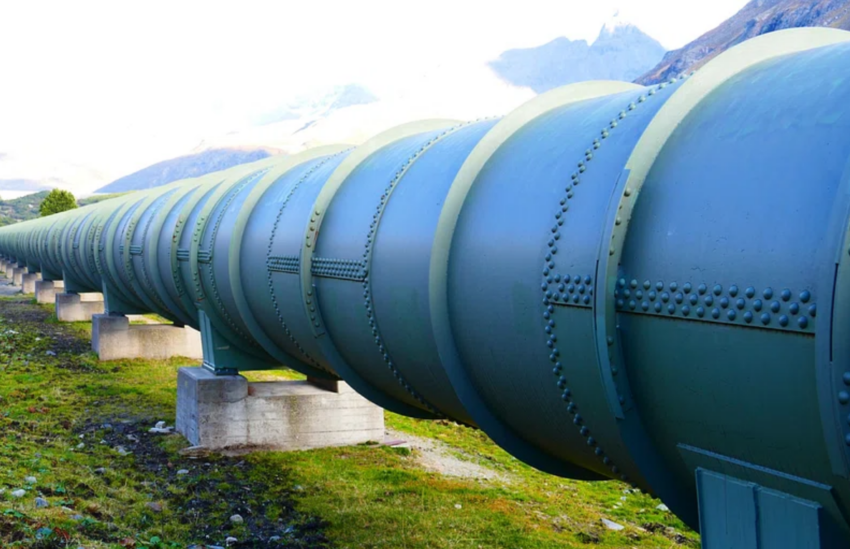In the quest for greener energy solutions, carbon sequestration for biofuels has emerged as a promising, albeit controversial, approach. This process involves capturing and storing carbon dioxide (CO2) emissions from biofuel production, such as ethanol, to mitigate their impact on the environment. Many farmers, who are already struggling financially, find the prospect of a ‘green’ payout for going along with the program very attractive. However, the means of transporting this captured CO2—through pipelines—has sparked fierce opposition from many farmers and raised concerns about the potential dangers these conduits pose.
Carbon sequestration for biofuels is part of a broader strategy to reduce greenhouse gas emissions and so as to battle ‘climate change’ (no longer global warming). By capturing CO2 from biofuel production facilities, it can be stored underground or used in enhanced oil recovery (EOR) operations. This approach aims to offset the emissions generated during the production process, making biofuels a more sustainable energy source.
However, the construction of pipelines to transport this captured CO2 has been met with resistance from farmers across the Midwest. In states like Iowa, Nebraska, and South Dakota, landowners have voiced their concerns about the potential impact of these pipelines on their property, crop yields, and the environment.
People of S Dakota (and IA, ND, NE, and MN), if you allow this CO2 pipeline+CCS project,https://t.co/s6VoO4bQRu
— Mark Z. Jacobson (@mzjacobson) July 26, 2024
you will "saddle consumers with high fuel costs for decades," while damaging land and health https://t.co/uhbNHTfXGM @KristiNoem @JimEschenbaum @WillMortenson
There’s also the issue of the biofuels themselves raising the price of food, as more crops are grown to be turned into fuel instead of food. What some people don’t realize is that it also raises the price of fuel.
You may know that the biofuel mandate raises food prices -thereby especially hurting the global poor- and has little to no environmental or energy independence benefit, but did you know it also raises gas prices by 20-25 cents a gallon?
— Gary Winslett 🌐🇺🇸 (@GaryWinslett) January 31, 2024
https://t.co/7mhAYAktmh pic.twitter.com/M59ckDo7fw
This is what I fear most. The construction phase.
— Benjamin Riensche (@BenRiensche) July 27, 2024
Mountains of topsoil heaved and piled, never to regain its productivity. Endless construction in the mud. Endless drainage tile lines severed.
And of course the glossy brochure will claim they will rectify & compensate https://t.co/jEmSpQhaN3 pic.twitter.com/zn7gH5GG6a
The dangers to people and animals associated with CO2 pipelines should also not be taken lightly. In 2020, a CO2 pipeline rupture in Satartia, Mississippi, sent 45 people to the hospital and raised questions about the safety of these conduits. CO2 is an asphyxiant that can displace oxygen in the air, leading to suffocation. In the event of a pipeline rupture, the gas can spread rapidly, posing a significant threat to humans and animals in the vicinity. Moreover, the lack of federal regulations for CO2 pipelines has further fueled concerns about their safety and the potential for environmental disasters.
Local farmers in the Midwest are fighting a major carbon capture pipeline.
— The New Lede (@thenewledenews) July 23, 2024
“It consumes your thoughts. You don’t sleep. You ask any of the landowners who have been fighting this, it’s been hard,” said Iowa farmer Kathy Stockdale.
✍️@ElkadiNina. @sejorghttps://t.co/s0JvjhyvfI
The Summit Carbon Solutions pipeline, for instance, plans to build a 2,000-mile network to transport CO2 from ethanol plants to underground storage sites. This has led to legal battles and protests from farmers who fear the loss of their land and the disruption of their livelihoods.
Opposition across the rural Midwest has delayed a pipeline carrying hazardous CO2, but recent approval by Iowa officials has breathed new life into the project, via @thenewledenewshttps://t.co/aJm9Mr2eH0
— Truthout (@truthout) July 21, 2024
As the debate over carbon sequestration for biofuels and the construction of CO2 pipelines rages on, it is clear that a balance must be struck between the pursuit of ‘sustainable’ solutions and the protection of the environment and the rights of landowners.


